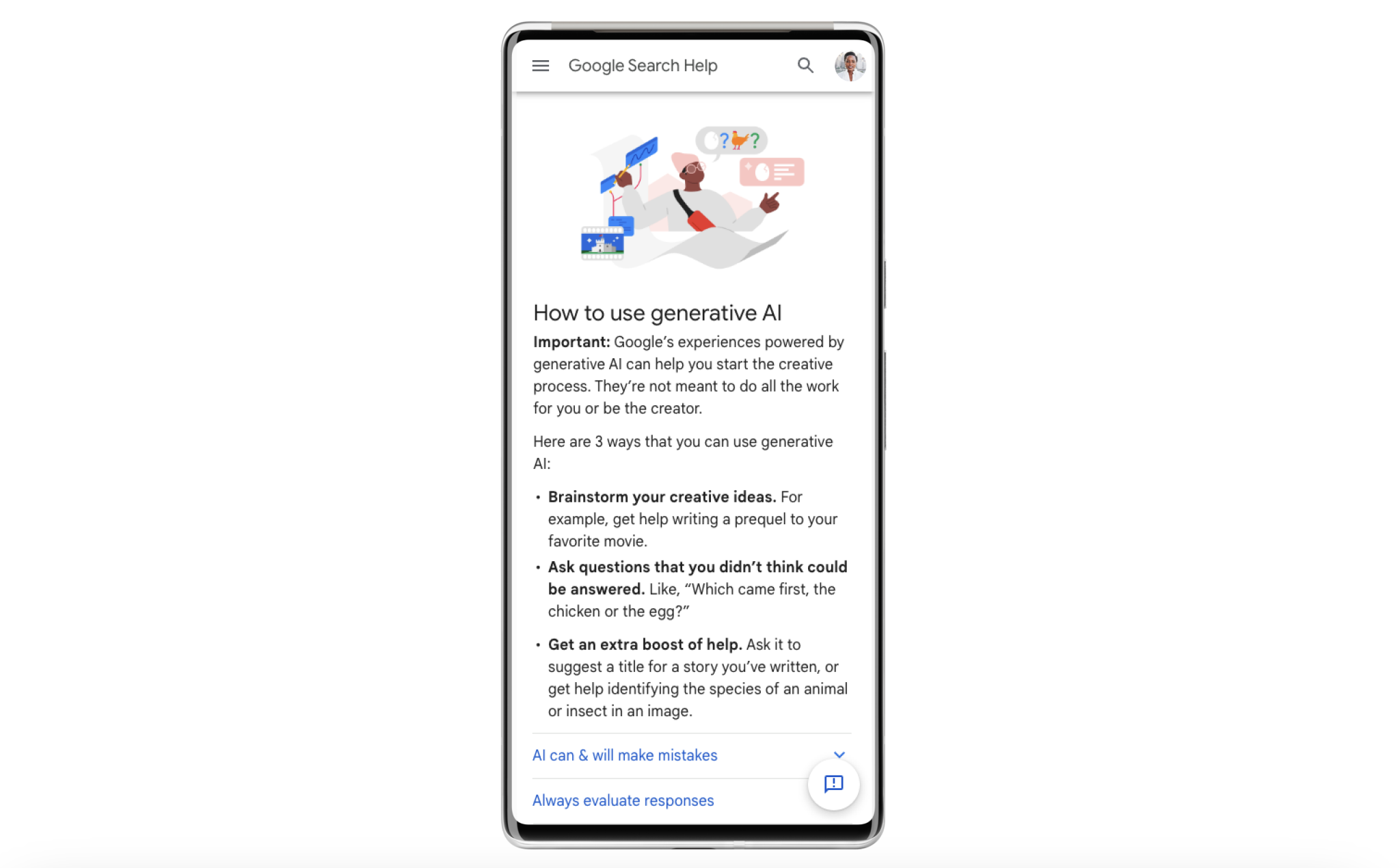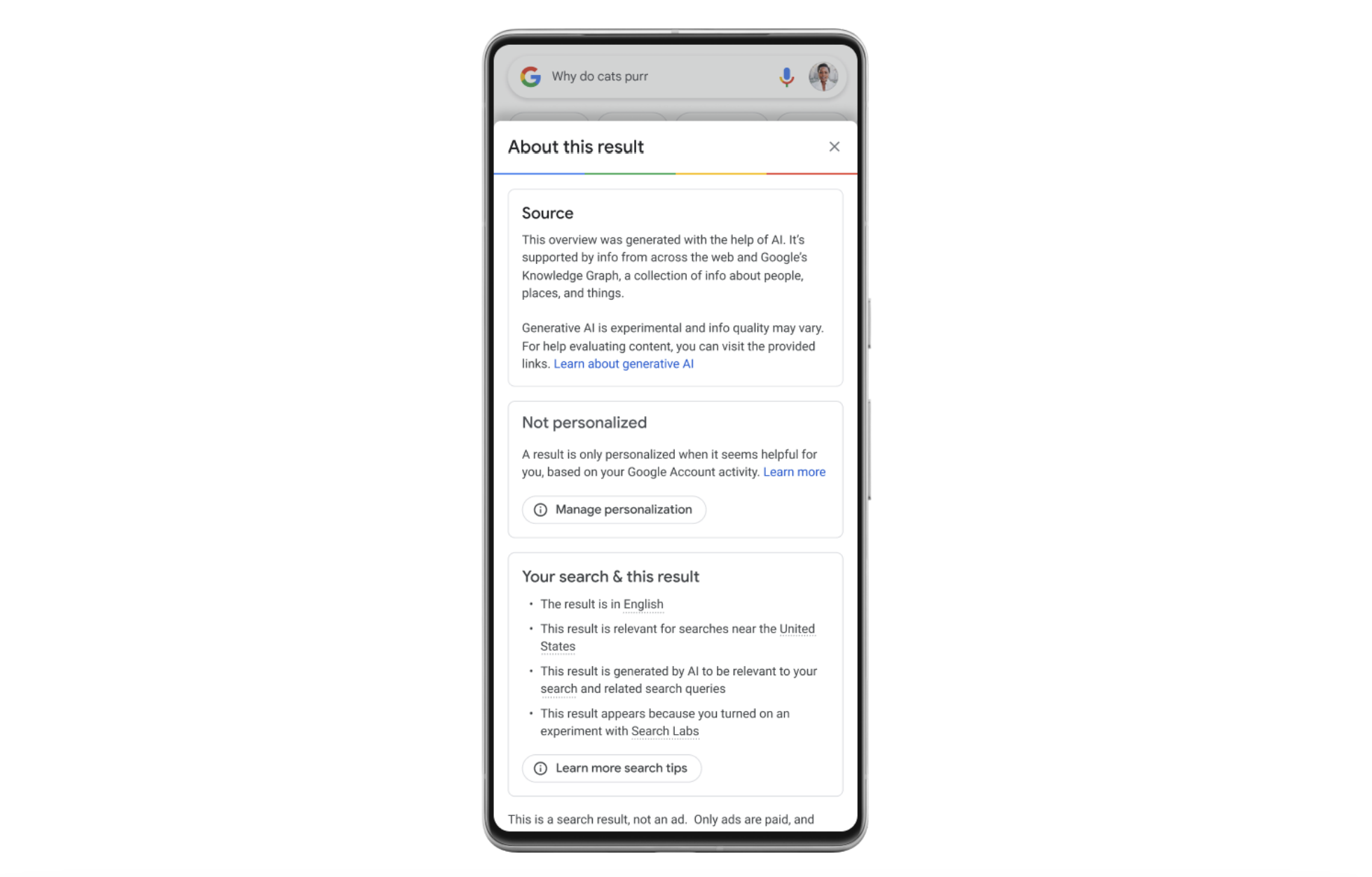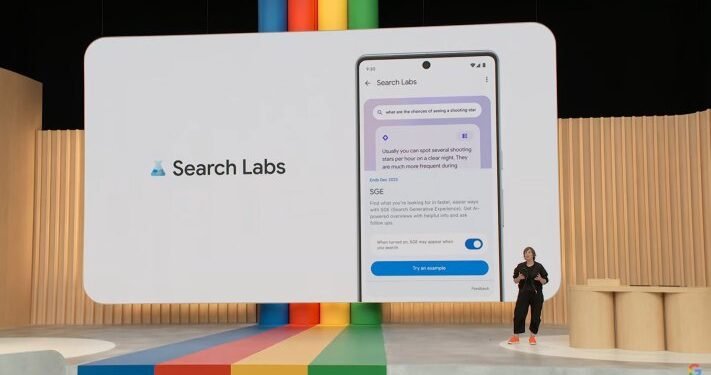
Google is opening up its generative AI search experience to teenagers, the company announced on Thursday. The company is also introducing a new feature to add context to the content that users see, along with an update to help train the search experience’s AI model to better detect false or offensive queries.
The AI-powered search experience, also known as SGE (Search Generative Experience), introduces a conversational mode to Google Search where you can ask Google questions about a topic and then have it return answers, similar to an AI chatbot.
Starting this week, teens ages 13-17 in the United States who are signed into a Google Account will be able to sign up for Search Labs to access the AI search experience through the Google app or Chrome desktop.
“Generative AI can help younger people ask questions they couldn’t typically get answered by a search engine and pose follow-up questions to help them dig deeper,” wrote Senior Director of Product Management at Google Hema Budaraju in a blog post. “As we introduce this new technology to teens, we want to strike the right balance in creating opportunities for them to benefit from all it has to offer, while also prioritizing safety and meeting their developmental needs. Informed by research and experts in teen development, we’ve built additional safeguards into the experience.”

Image Credits: Google
Budaraju notes that Google has designed guardrails to prevent inappropriate or harmful content from surfacing. For instance, the company has placed stronger protections for outputs related to illegal or age-gated substances or bullying.
The expansion to teenagers comes as Google notes that since the launch of SGE, it’s found the experience is more popular among younger users. Google said the highest satisfaction scores are among those ages 18-24, who like to ask their questions in a more conversational manner.
In addition to opening up the AI search experience to teenagers, Google is introducing a new feature to give users more context about the content that they see. The company is adding an “About this result” notice, which has long been available in the standard Google Search experience, to the AI search experience. Google says the notices will give people context about how SGE generated the response, so they can get a better idea of how the technology works.
Google soon plans to add “About this result” to the individual links that are included in SGE responses, so people can understand more about the web pages that back up the information in AI-powered overviews.

Image Credits: Google
The company says it’s focused on making targeted improvements to the AI search experience. One area where it’s looking to improve is when a query includes a false or offensive premise, which can result in an AI-powered response that appears to validate said premise. Google notes that this can happen even if the web pages themselves point to reliable information.
To help address this situation, Google is rolling out an update to help train the AI model to better detect these types of false or offensive premise queries, and respond with higher-quality, more accurate responses. The company is also working on solutions to use large language models to critique their own first draft responses on sensitive topics, and then rewrite them based on quality and safety principles.
Google has spent the last few months updating the AI search experience with things like support for videos and images, local info and travel recommendations, as well as new tools to provide summaries, definitions, and more help with coding-related queries. It has also started to experiment with ads that would be integrated alongside its AI-generated responses, looking to capitalize on the new real estate dedicated to the AI chat experience.








